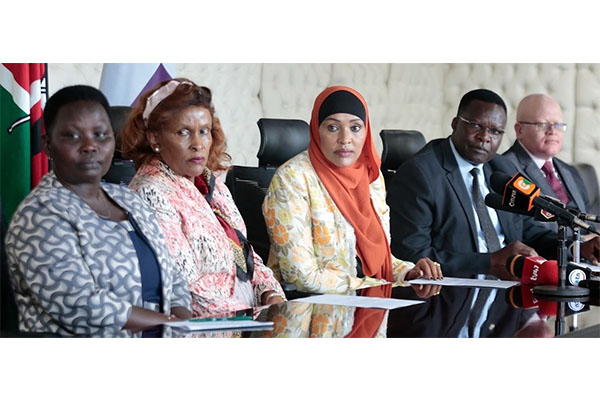Rising Tide of Femicide in Kenya: A Wake-Up Call for Action
In a stark and troubling revelation, the National Gender and Equality Commission (NGEC) has called attention to the disturbing rise in femicide across Kenya, a nation grappling with a growing epidemic of gender-based violence (GBV).
This unsettling trend was highlighted in a recent report by Africa Uncensored, led by Chairperson Rehema Jaldessa, which underscores the increasingly lethal threat women face in the country.
According to the report, counties such as Nairobi, Kiambu, and Nakuru have been identified as the most affected regions, with alarming femicide statistics on the rise. In a worrying new development, Kisii, Kitui, Meru, and Nyeri have now been classified as high-risk areas, escalating the urgency for targeted intervention.
The findings reveal a 7% increase in cases of sexual assault preceding murder, while incidents of brutal killings involving hacking have risen by 6%. A disturbing shift in methods of attack has also been noted, with perpetrators increasingly using bladed weapons, such as household cutlery, rather than resorting to physical violence like strangulation, which demands greater physical effort. This emerging trend points to a shift in criminal behaviour, with deadly weapons more accessible and requiring less direct confrontation.
The report delivers a chilling truth— intimate partners remain the principal perpetrators of these heinous acts. Boyfriends, husbands, and in many cases, former lovers, are identified as the primary offenders in femicide cases. Shockingly, women now face a 75% likelihood of being murdered by someone they know—whether it is a spouse, a close family member, or even a trusted friend. This statistic is a grim reminder of the hidden dangers lurking within intimate relationships, where violence often escalates behind closed doors.
In response to the growing crisis, the National Gender and Equality Commission has taken decisive action, organising a one-week forum aimed at addressing the root causes of GBV and femicide. The forum, which was hosted in counties most affected by genderbased violence, brought together a wide range of stakeholders, survivors, and community leaders. The sessions provided an invaluable platform for open dialogue, allowing participants to share their experiences, offer insights, and brainstorm effective intervention strategies.
The Commission's Chairperson, Rehema Jaldesa, voiced concern over the structural inadequacies within the justice system that continue to protect offenders and frustrate efforts to ensure accountability. The lack of timely legal redress, combined with cultural and societal barriers, has made it exceedingly difficult to dismantle the deeply ingrained attitudes that foster violence against women.
"We cannot continue to turn a blind eye to the alarming rate at which women are losing their lives at the hands of those who should love and protect them," Jaldessa remarked. "It is crucial that we create safe spaces for women and girls and strengthen the legal and social frameworks that hold offenders accountable."
While the road ahead remains challenging, the Commission’s initiative underscores a critical shift towards more proactive measures in addressing femicide and GBV in Kenya. With a focus on prevention, survivor support, and justice reform, the hope is that the country will begin to stem the tide of violence and work towards a safer, more equitable future for women and girls.
NGEC Commissioners Caroline N. Lentupuru, Dr. Margaret Karungaru, Chairperson Rehema Jaldesa, Vice Chairperson Thomas Koyier, and Commissioner nzomo mbithuka address the media at their headquarters in Nairobi on matters concerning Gender-Based Violence (GBV).


Comments